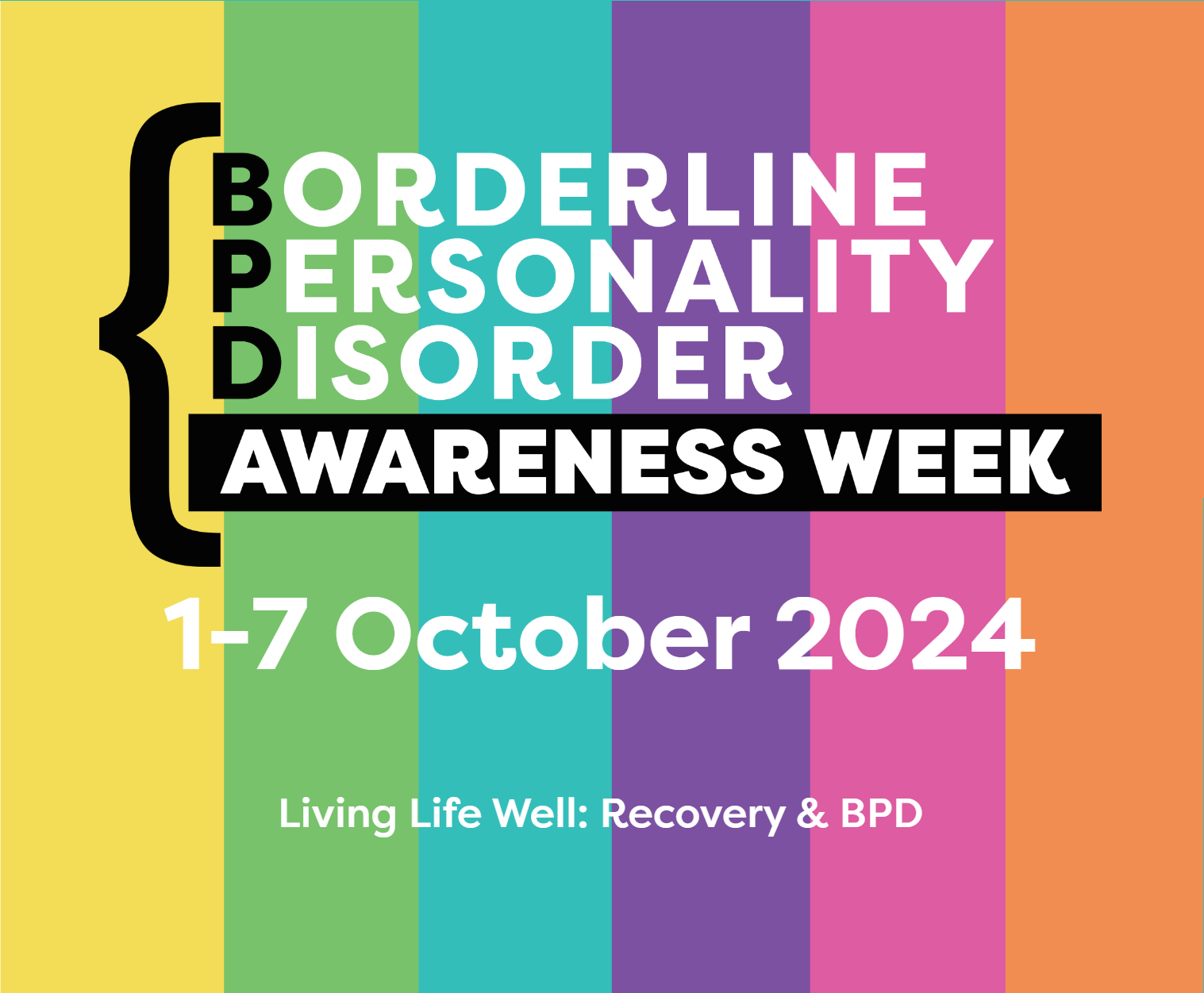An open letter from those with BPD
An Open Letter to People who do Not have Borderline Personality Disorder … from Those of Us who Do
by Debbie Corso
Transcript:
Dear Friends, Family Members, Lovers, Ex-lovers, Coworkers, Children, and others of those of us with Borderline Personality Disorder,
You may be frustrated, feeling helpless, and ready to give up. It’s not your fault. You are not the cause of our suffering. You may find that difficult to believe, since we may lash out at you, switch from being loving and kind to non-trusting and cruel on a dime, and we may even straight up blame you. But it’s not your fault. You deserve to understand more about this condition and what we wish we could say but may not be ready.
It is possible that something that you said or did “triggered” us. A trigger is something that sets off in our minds a past traumatic event or causes us to have distressing thoughts. While you can attempt to be sensitive with the things you say and do, that’s not always possible, and it’s not always clear why something sets off a trigger.
The mind is very complex. A certain song, sound, smell, or words can quickly fire off neurological connections that bring us back to a place where we didn’t feel safe, and we might respond in the now with a similar reaction (think of military persons who fight in combat — a simple backfiring of a car can send them into flashbacks. This is known as PTSD, and it happens to a lot of us, too.)
But please know that at the very same time that we are pushing you away with our words or behavior, we also desperately hope that you will not leave us or abandon us in our time of despair and desperation.
This extreme, black or white thinking and experience of totally opposite desires is known as a dialectic. Early on in our diagnosis and before really digging in deep with DBT (Dialectical Behavior Therapy), we don’t have the proper tools to tell you this or ask for your support in healthy ways.
We may do very dramatic things, such as harming ourselves in some way (or threatening to do so), going to the hospital, or something similar. While these cries for help should be taken seriously, we understand that you may experience “burn out” from worrying about us and the repeated behavior.
Please trust that, with professional help, and despite what you may have heard or come to believe, we CAN and DO get better.
These episodes can get farther and fewer between, and we can experience long periods of stability and regulation of our emotions. Sometimes the best thing to do, if you can muster up the strength in all of your frustration and hurt, is to grab us, hug us, and tell us that you love us, care, and are not leaving.
One of the symptoms of Borderline Personality Disorder is an intense fear of being abandoned, and we therefore (often unconsciously) sometimes behave in extreme, frantic ways to avoid this from happening. Even our perception that abandonment is imminent can cause us to become frantic.
Another thing that you may find confusing is our apparent inability to maintain relationships. We may jump from one friend to another, going from loving and idolizing them to despising them – deleting them from our cell phones and unfriending them on Facebook. We may avoid you, not answer calls, and decline invitations to be around you — and other times, all we want to do is be around you.
This is called splitting, and it’s part of the disorder. Sometimes we take a preemptive strike by disowning people before they can reject or abandon us. We’re not saying it’s “right.” We can work through this destructive pattern and learn how to be healthier in the context of relationships. It just doesn’t come naturally to us. It will take time and a lot of effort.
It’s difficult, after all, to relate to others properly when you don’t have a solid understanding of yourself and who you are, apart from everyone else around you.
In Borderline Personality Disorder, many of us experience identity disturbance issues. We may take on the attributes of those around us, never really knowing who WE are. You remember in high school those kids who went from liking rock music to pop to goth, all to fit in with a group – dressing like them, styling their hair like them, using the same mannerisms? It’s as if we haven’t outgrown that.
Sometimes we even take on the mannerisms of other people (we are one way at work, another at home, another at church), which is part of how we’ve gotten our nickname of “chameleons.” Sure, people act differently at home and at work, but you might not recognize us by the way we behave at work versus at home. It’s that extreme.
For some of us, we had childhoods during which, unfortunately, we had parents or caregivers who could quickly switch from loving and normal to abusive. We had to behave in ways that would please the caregiver at any given moment in order to stay safe and survive. We haven’t outgrown this.
Because of all of this pain, we often experience feelings of emptiness. We can’t imagine how helpless you must feel to witness this. Perhaps you have tried so many things to ease the pain, but nothing has worked. Again – this is NOT your fault.
The best thing we can do during these times is remind ourselves that “this too shall pass” and practice DBT skills – especially self-soothing – things that helps us to feel a little better despite the numbness. Boredom is often dangerous for us, as it can lead to the feelings of emptiness. It’s smart for us to stay busy and distract ourselves when boredom starts to come on.
On the other side of the coin, we may have outburst of anger that can be scary. It’s important that we stay safe and not hurt you or ourselves. This is just another manifestation of BPD.
We are highly emotionally sensitive and have extreme difficulty regulating/modulating our emotions. Dr. Marsha Linehan, founder of DBT, likens us to 3rd degree emotional burn victims.
Through Dialectical Behavior Therapy, we can learn how to regulate our emotions so that we do not become out of control. We can learn how to stop sabotaging our lives and circumstances…and we can learn to behave in ways that are less hurtful and frightening to you.
Another thing you may have noticed is that spaced out look on our faces. This is called dissociation. Our brains literally disconnect, and our thoughts go somewhere else, as our brains are trying to protect us from additional emotional trauma. We can learn grounding exercises and apply our skills to help during these episodes, and they may become less frequent as we get better.
But, what about you?
If you have decided to tap into your strength and stand by your loved one with BPD, you probably need support too. Here are some ideas:
- Remind yourself that the person’s behavior isn’t your fault
- Tap into your compassion for the person’s suffering while understanding that their behavior is probably an intense reaction to that suffering
- Do things to take care of YOU.
- In addition to learning more about BPD and how to self-care around it, be sure to do things that you enjoy and that soothe you, such as getting out for a walk, seeing a funny movie, eating a good meal, taking a warm bath — whatever you like to do to care for yourself and feel comforted.
- Ask questions. There is a lot of misconception out there about BPD.
- Remember that your words, love, and support go a long way in helping your loved one to heal, even if the results are not immediately evident
Not all of the situations I described apply to all people with Borderline Personality Disorder. One must only have 5 symptoms out of 9 to qualify for a diagnosis, and the combinations of those 5-9 are seemingly endless. This post is just to give you an idea of the typical suffering and thoughts those of us with BPD have.
This is my second year in DBT. A year ago, I could not have written this letter, but it represents much of what was in my heart but could not yet be realized or expressed.
My hope is that you will gain new insight into your loved one’s condition and grow in compassion and understand for both your loved one AND yourself, as this is not an easy road.
I can tell you, from personal experience, that working on this illness through DBT is worth the fight. Hope can be returned. A normal life can be had. You can see glimpses and more and more of who that person really is over time, if you don’t give up. I wish you peace.
Related posts
Next Meeting – July
Our next Sanctuary meeting will be on Tuesday, July 8, at 6.00pm, in the Marjorie Black Room at SAC
Surviving Christmas and the Silly Season
With the end of the year nearly upon us, we look forward to celebrating with family and friends. But
Living Life Well – BPD Awareness Week 2024
This week is BPD Awareness Week and the theme is Living Life Well - Recovery and BPD. Professor Bri




